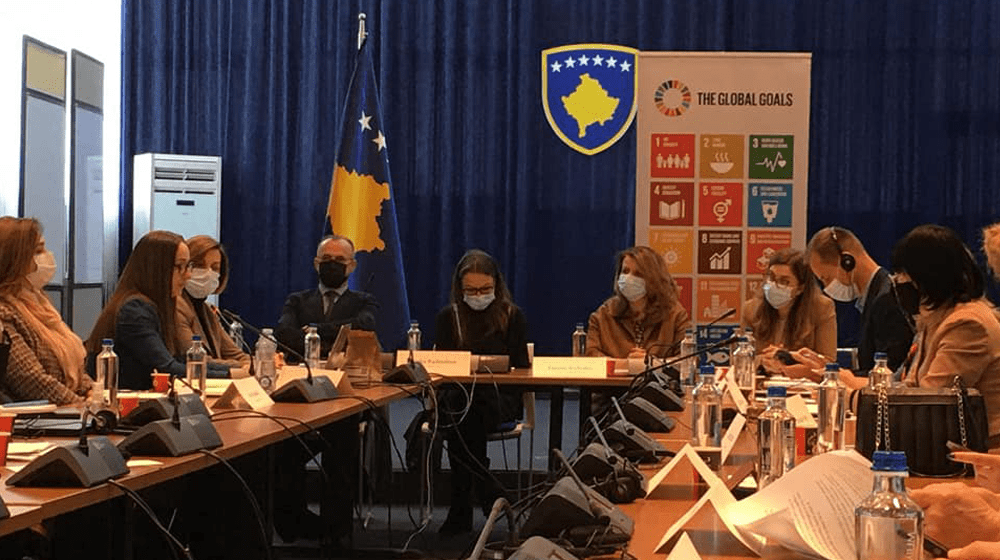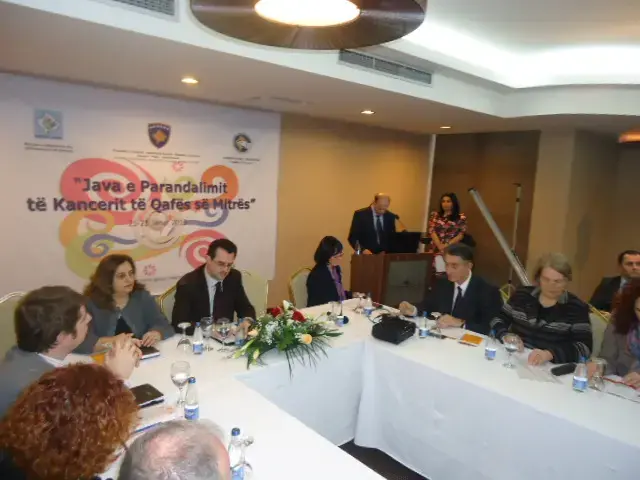Sexual and reproductive health and rights are essential to human dignity, survival, good health and the enjoyment of a range of other fundamental human rights. Driven by the continuous pursuit of systemic upgrades and practical methods of advancing these rights, UNFPA Kosovo has in recent years focused on comprehensive action against cervical cancer. While this form of cancer has been a significant historical challenge for women around the globe, the recent decades have seen major medical advancements that have increased detection and prevention capacities and significantly reduced its mortality rate.
UNFPA Kosovo took up this cause in 2016. We analyzed our own and the data of other specialized agencies. It pointed to a health system that receives 3% of the gross domestic product and where close to 40% of expenditures coming from out-of-pocket payments. Importantly, there was a lack of advanced and specialized equipment and staff, including on cervical cancer. With studies showing that “more than 70% of cervical precancerous lesions could have been prevented using nationwide HPV-based cervical cancer screening and HPV vaccination,”* it was and remains obvious that this is a key area for intervention.
With our implementing partner, NGO Action for Mothers and Children (AMC), UNFPA Kosovo engaged in two directions to: a) improve policies and b) install an extensive screening program.
For the first component, UNFPA and AMC teamed up with the K10 coalition of ten NGOs to facilitate concerted advocacy for improved quality and access to sexual and reproductive health services. Since 2016, K10 has been advocating with the government on the necessity of budgeting for reproductive sexual health spending materials and advising the Ministry of Health on the implementation of a strategic plan for family planning and reproductive rights promotion. The NGO coalition has also strived to raise awareness and expand capacities. As the only coalition that focuses on sexual and reproductive health, K10 has been able to make a distinct contribution to advancing this sector and reaching out to young people and underrepresented communities
In parallel, the program piloted a systemic cervical cancer screening program in Pristina. Over subsequent years, the success of the pilot drove the extension of the program to the municipalities of Prizren, Pejë/Peć, Mitrovica, Gjilan/Gnjilane, and Obiliq/Obilić, in subsequent years (2018-2021). With the gradual introduction of the screening programs, we engaged in the accompanying effort of spreading the news to the wider population. An SMS invitation system was launched in these municipalities, whereas direct awareness raising was conducted through lectures in schools, public institutions, with marginalized communities and media presence (TV, radio, and online platforms). There has also been continuous cooperation between primary, secondary and tertiary healthcare levels, in particular between regional hospitals and the Institute of Pathology at the University Clinical Center of Kosovo.
All this has led to tangible results. Since the beginning in 2016 and through 2021, the total number of women who underwent screening has surpassed 11,000. Most of them had never before conducted this type of screening. These figures included not only women residents from the listed municipalities, but also many from surrounding urban and rural areas. Over the last three years, out of the 5,267 women screened, 405 came from municipalities outside of the program.
Gradually, the vaccination stream is also being introduced. On 31 January, during the Cervical Cancer Prevention Awareness Week, UNFPA Kosovo, together with the Health and Social Welfare Committee and Sustainable Development Goals (SDGs) Council, organized an advocacy round table with parliamentarians, health ministry, municipalities implementing the cervical cancer screening programs, health sector NGOs, media and other stakeholders. There, Deputy Minister of Health Dafina Gexha announced the inclusion of the human papilloma virus (HPV) vaccine in the official immunization plan of Kosovo. The first contingent of 300 HPV vaccines is procured and will shortly be used for the immunization of girls ages 12-26. The National Board on Cancer Control is also being assembled and will be established in near future.
Encouraged by these successes, UNFPA Kosovo will follow up and expand the program. We will work on a Kosovo-wide scaling-up of cervical cancer screening and placing the issue at the forefront of the health care agenda, thus providing vital reproductive care upgrade and facilitating the implementation of SDGs related to health and wellbeing and gender equality.
[1*] Pranvera, Zejnullahu-Raçi & Hosnjak, Lea & Poljak, Mario & Lepej, Snjezana & Vince, Adriana. (2018). Pre-vaccination prevalence of high-risk human papillomaviruses (HPV) in women from Kosovo and their related sociodemographic characteristics. Ginekologia Polska. 89. 485-494. 10.5603/GP.a2018.0083.




